When I asked the other Irish Country Living staff if they had any thoughts on questions I should pose to the IFA’s new rural crime prevention executive in this interview, they had many suggestions: “Does he have a cape? Does he have a basset hound? Is he taking apprentices? Has he ever prevented a crime?”
The answer to the last question is most certainly yes, because Colin Connolly is a former guard with 12 years’ experience. But who leaves such a permanent and pensionable position as that of a garda? Colin acknowledges himself he has left a job he could have retired from at the age of 50 – but his logic for the move seems sound.
“Working in the gardaí, you engage in crime on a daily basis but it is regionally confined. For example, I was working in Cabinteely/Foxrock. The IFA gives you the opportunity to work nationally. I’m the only person in this position. I can develop policy, I can get autonomy. You don’t get that in the Garda Síochána, it’s very structured.
“It’s personal ambition. Within the gardaí I didn’t see career progression in line with my requirements. It would have taken me 10 years in the gardaí to get to where I am in IFA now. In this new role I can make it what I want it to be. We will work closely with the gardaí and the fact I know the organisation intrinsically helps.”
The recession, of course, is also a factor.
“Morale in the guards is quite low,” says Colin. “A number have emigrated and joined the Australia and New Zealand police forces. I’m one of the few who’ve left for a job in this country.”
Morale being low isn’t necessarily to do with GSOC issues, according to Colin. It’s more that the members on the ground feel neglected.
“Pay and conditions have been eroded significantly. There’s embargoes on recruitment, there’s pay cuts, there’s pay freezes. People are struggling to pay rent in Dublin. Guards are commuting to work. They’re working shift hours.”
Aged 32, Colin says: “I’m in that generation. I’m married with two kids. I’ve two mortgages. I’m an accidental landlord. We considered emigration as an option. Lots of Irish guards have gone to New South Wales as the salary and career opportunity is better over there, but Australia was a step too far for me.”
Colin says he’s been impressed with the IFA since he joined the organisation.
“I left the most secure job in the country to go to the IFA. They listen to their members on the ground and rural crime is at the top of the agenda for their members.”
His role is to create awareness and get people engaged.
Rural crime policy & procedure
“I will develop policy and procedure in the area of rural crime and rural security. Coming from a non-farming background, I want to engage the wider community with the IFA. Part of my job is to get around to the counties. I’ll be involved in putting CCTV in villages, setting up text alerts, seeing what the IFA can do.”
Part of Colin’s role will be centred around TheftStop, a farm theft prevention initiative that has been developed by the IFA in partnership with the gardaí. TheftStop provides members with a unique security ID and they can then mark their machinery and equipment with this ID.
Colin says that media coverage has highlighted rural areas as being more affected by crime when really crime is across the spectrum, but he says the difference in rural areas is the isolation and the lack of services – both security services (gardaí) and medical services.
“Due to geographic location, if something happens there’s more waiting time if you need an ambulance and there used to be a garda station in each village. The physical presence of gardaí in communities will have an effect if we put them back in. In the community when I grew up, you used to know the name of the local guard. He was at church, he was in the GAA club.
“People in Ireland have demanded action on rural crime and already we’ve seen the Department of Justice announcements on extra guards. We’re in the middle of an election campaign – rural crime and rural security will be a big issue, and if people keep looking for it we’ll get it.”
But who, in Colin’s view, is perpetrating the crime? Are there a very specific number of organised criminals doing it, who are known to the gardaí, who if rounded up would fit in one mini bus – as Vincent Browne put it recently?
Colin says there’s an element of truth in there being a number of organised criminal gangs behind the crime spree, but he says there are habitual criminals in rural areas and that even if the organised criminal gangs known to the gardaí were rounded up, we’d still have rural crime. But what draws these habitual criminals to such a way of life?
“Background has an impact,” explains Colin, “but I’ve worked in affluent areas and there’s criminality there too.
“They’re victims of our current society, neglected by the educational system and wider social circle. In a recession, things are cut. It’s so important that there are local facilities and playgrounds – social activities, sports clubs, pitches, community groups – all of this does have a massive effect, it’s somewhere to go in the evenings. There has to be investment in that area. For example, young people could be into the gym but they can’t afford membership. You have to actively engage them.”
Colin does concede, however, that you’ll always have people who won’t engage, perhaps those who come from a criminal family, and there’s no support structure.
Better impact
“Working in the guards was an education on life for me as a person. There were highs and lows. But in this role with IFA I can have a better impact on a wider area.”
Colin believes one of the biggest issues when it comes to crime is sentencing.
“Sentencing needs to be looked at. The gardaí will make the arrest but when the case goes to court the burden of proof is on the prosecution. And it can be 12 months before a case comes to court. There needs to be a complete review of how the system works in criminal investigation.”
Colin is keen to stress that investigations are conducted to a very high standard, but the process itself is very time-consuming and it slows everything down.
We look forward to seeing the positive role the IFA can play in combating this issue and if there’s one thing for sure, it’s that the right man is at the helm.
The Gardaí’s loss is very much the IFA’s gain. When it comes to Colin Connolly, watch this space.
arson attack
Terry and Amelda Middleton are Shorthorn breeders from Co Westmeath and their farm was the location on an alleged unprovoked arson attack earlier this month (pictured left). The Middletons, who were without insurance, suffered damage totalling in excess of €60,000. The local community has established a fund to help the family recoup some of the money. To donate, you can visit www.gofund.me/middletonfarmfund.



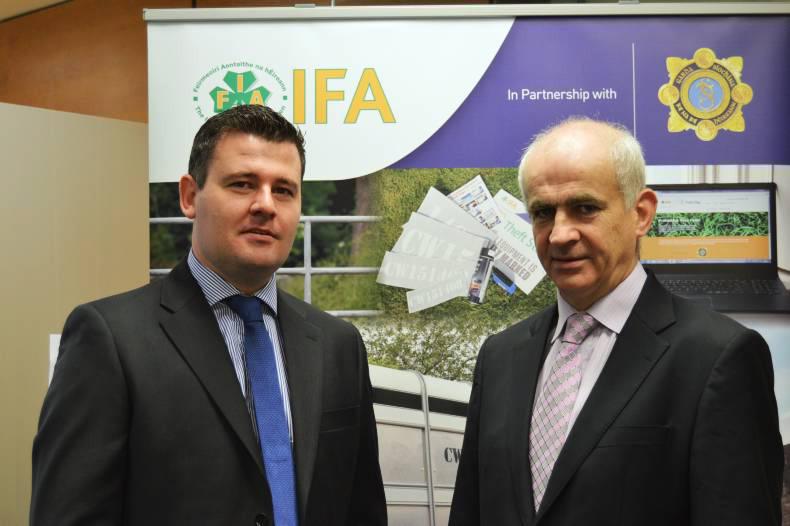

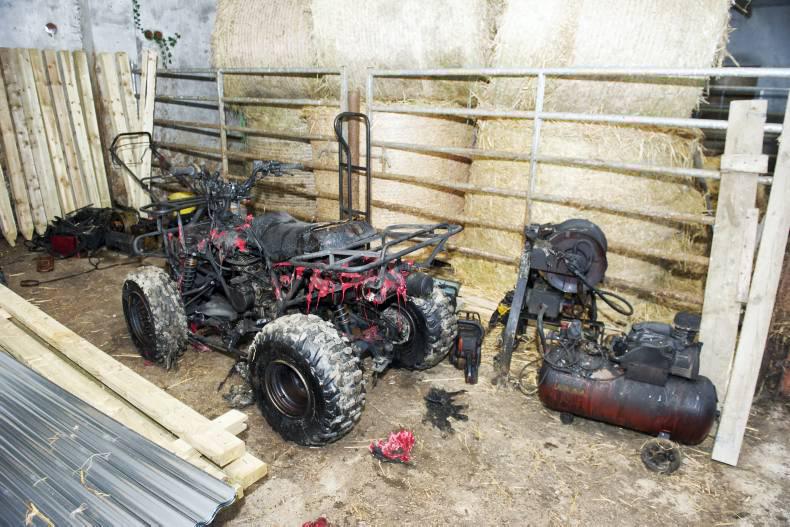
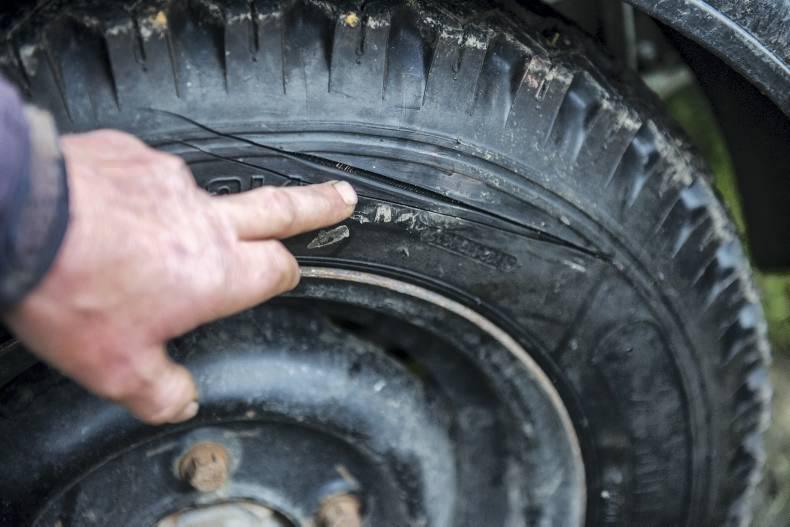

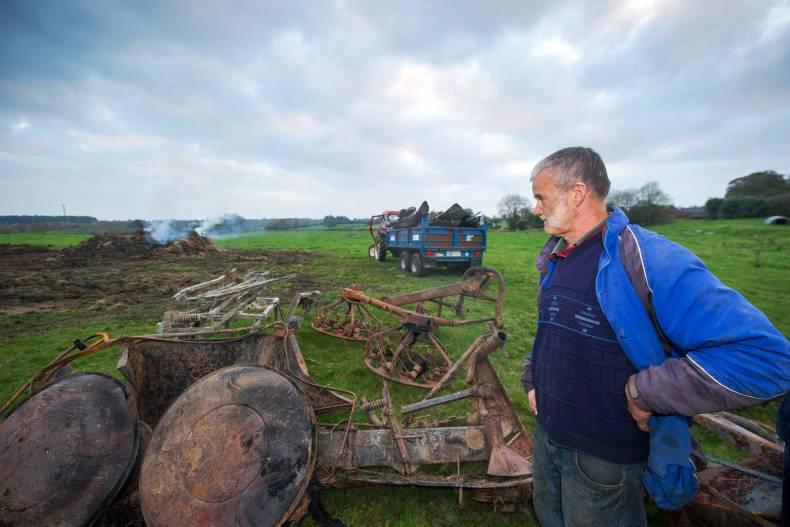
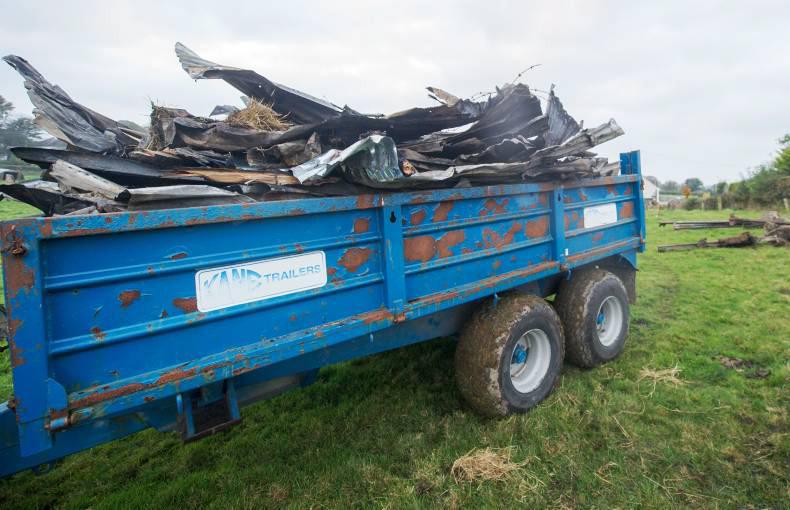
SHARING OPTIONS